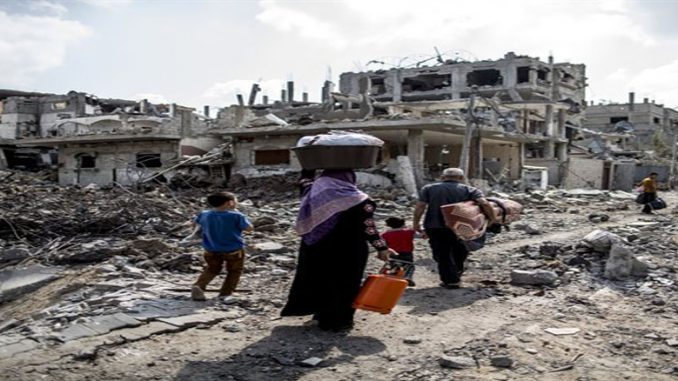Certain quantities of cement have been allowed to enter the small Palestinian territory since September 2014, when UN’s Middle East envoy announced a UN mechanism, referred to as the “Serry Plan,” to assist with reconstruction efforts after Israel’s 2014 offensive on Gaza that left tens of thousands of Palestinians homeless.
Israel banned the entry of cement to the private sector in the Gaza Strip for more than two months last spring, following the discovery of a tunnel passing from the Gaza Strip into Israel — the first to be found since Israel’s military offensive on the coastal enclave in 2014, with Israeli accusing Hamas of diverting construction materials from its intended legitimate beneficiaries.
After the ban was lifted, however, officials have maintained that the amount of cement allowed into Israel has remained far below the needed supplies for the two million Palestinians living under a near decade long Israeli-imposed siege.
Cement restrictions are part of Israel’s broader siege on the Gaza Strip, which has been under a severe economic blockade imposed by Israel since 2006. The blockade has led to frequent humanitarian crises for Gazans, and the United Nations and various human rights groups have repeatedly called on Israel to lift it.
The destruction from three Israeli offensives over the past six years, including damage to the enclave’s water, sanitation, energy, and medical facilities, coupled with slow reconstruction due to the blockade led the UN in September to warn that Gaza could be “uninhabitable” by 2020.




